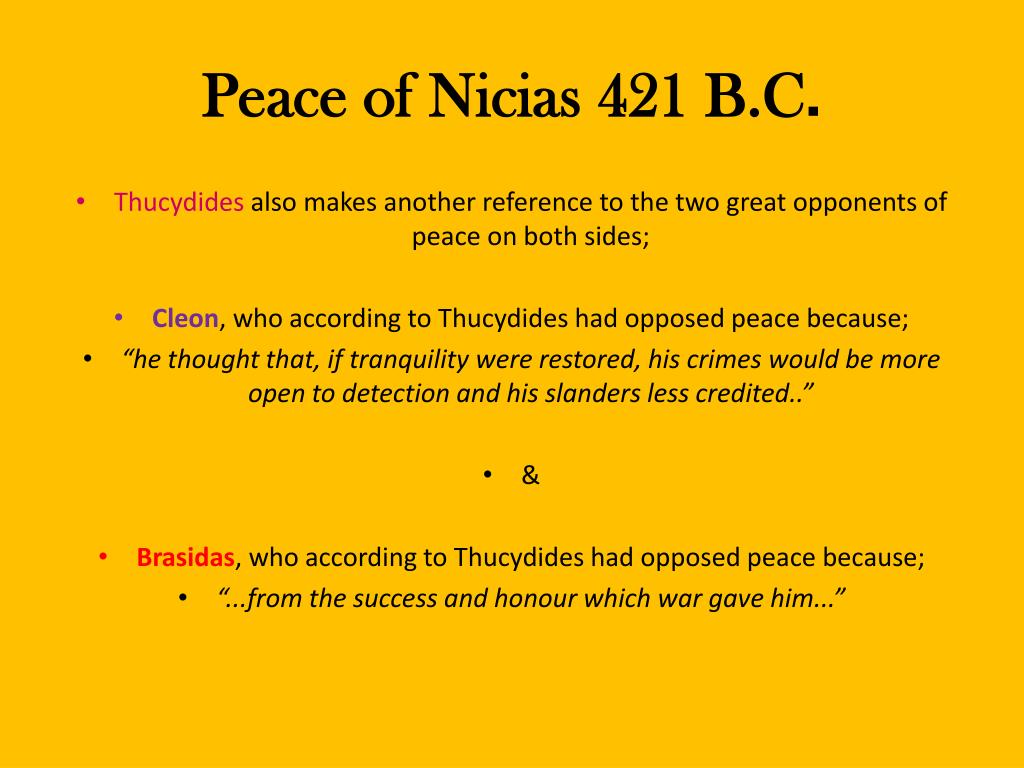

In 422 BCE, Cleon was killed by Brasidas, and Nicias argued that it was time to make peace with Sparta. Nicias was well-known for his piety, and he sacrificed to the gods every day however, his reliance on diviners would ultimately contribute to his downfall. Plutarch was writing around 500 years after the death of Nicias, but he records that a statue of Athena and a shrine to Dionysus, paid for by Nicias, were still visible in his day. Unlike Pericles, who had won support from the masses "by virtue of his natural superiority and the force of his eloquence," Nicias "was exceptionally rich and used his wealth to win their favour" ( Plutarch, Life of Nicias, 3). As a representative of the wealthy conservative faction, Nicias often came into conflict with Cleon. He was extremely wealthy, and Xenophon related that Nicias owned 1,000 slaves who were hired out for an obol a day each to work in the silver mines at Laurium ( Ways and Means, 14). Nicias, the son of Niceratus, was descended from an aristocratic Athenian family. Captured by the Syracusans, Nicias and his fellow general Demosthenes were executed. Despite the high risks involved, the campaign came close to success however, when the tide turned against Athens, Nicias' indecision hindered the Athenian escape.

Nonetheless, he still joined the campaign when chosen as one of its generals. As a general he was known for his prudence, and he argued against launching the Sicilian Expedition. After the death of Cleon (422 BCE), he negotiated the Peace of Nicias with Sparta, temporarily ending the Peloponnesian War. He became established as a prominent political leader of the aristocratic faction in Athenian politics and generally recommended a cautious line in opposition to the more hawkish anti-Spartan attitudes of popular leaders such as Cleon and Alcibiades. 470-413 BCE), was a wealthy Athenian politician and general during the Peloponnesian War (431-404 BCE).


 0 kommentar(er)
0 kommentar(er)
